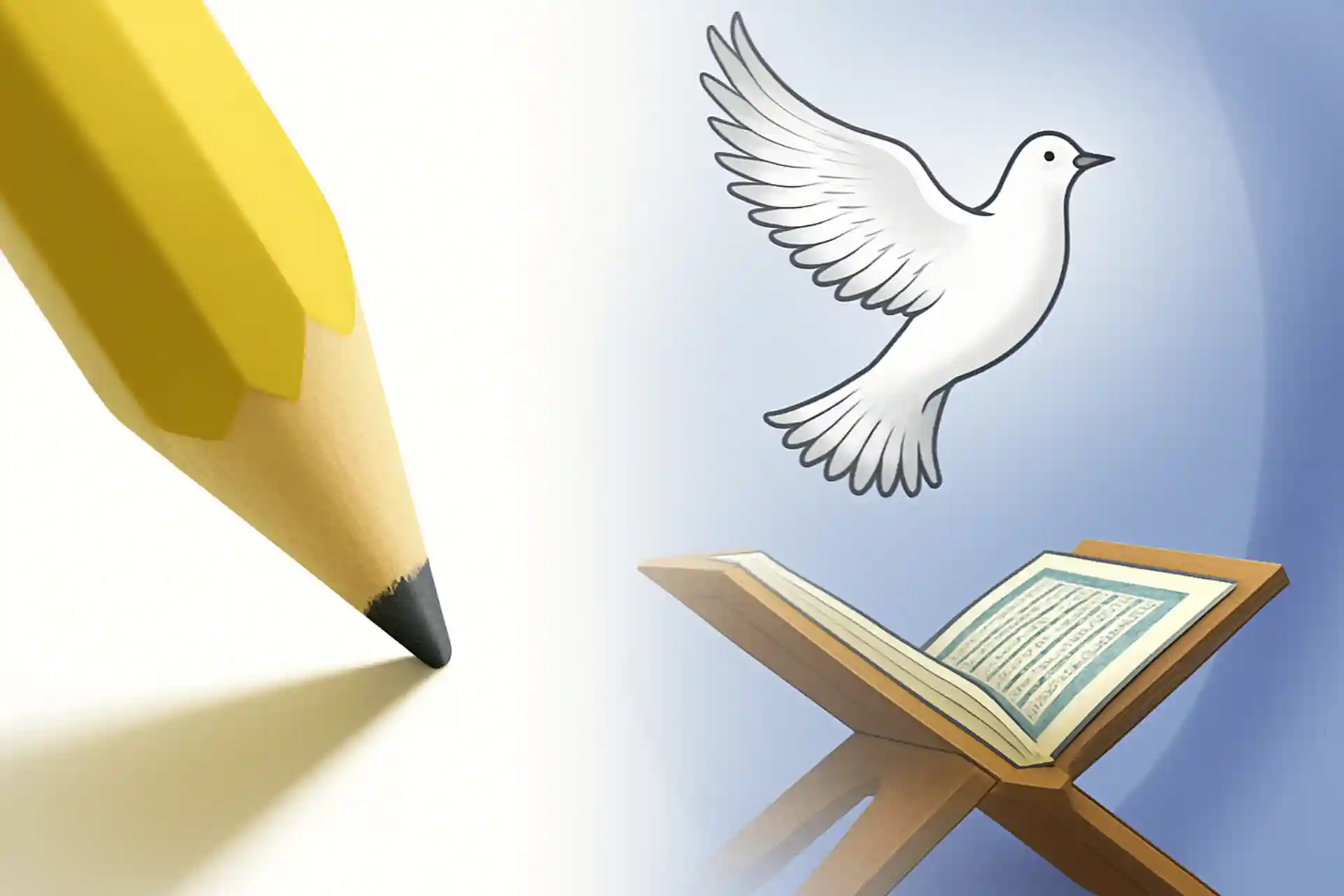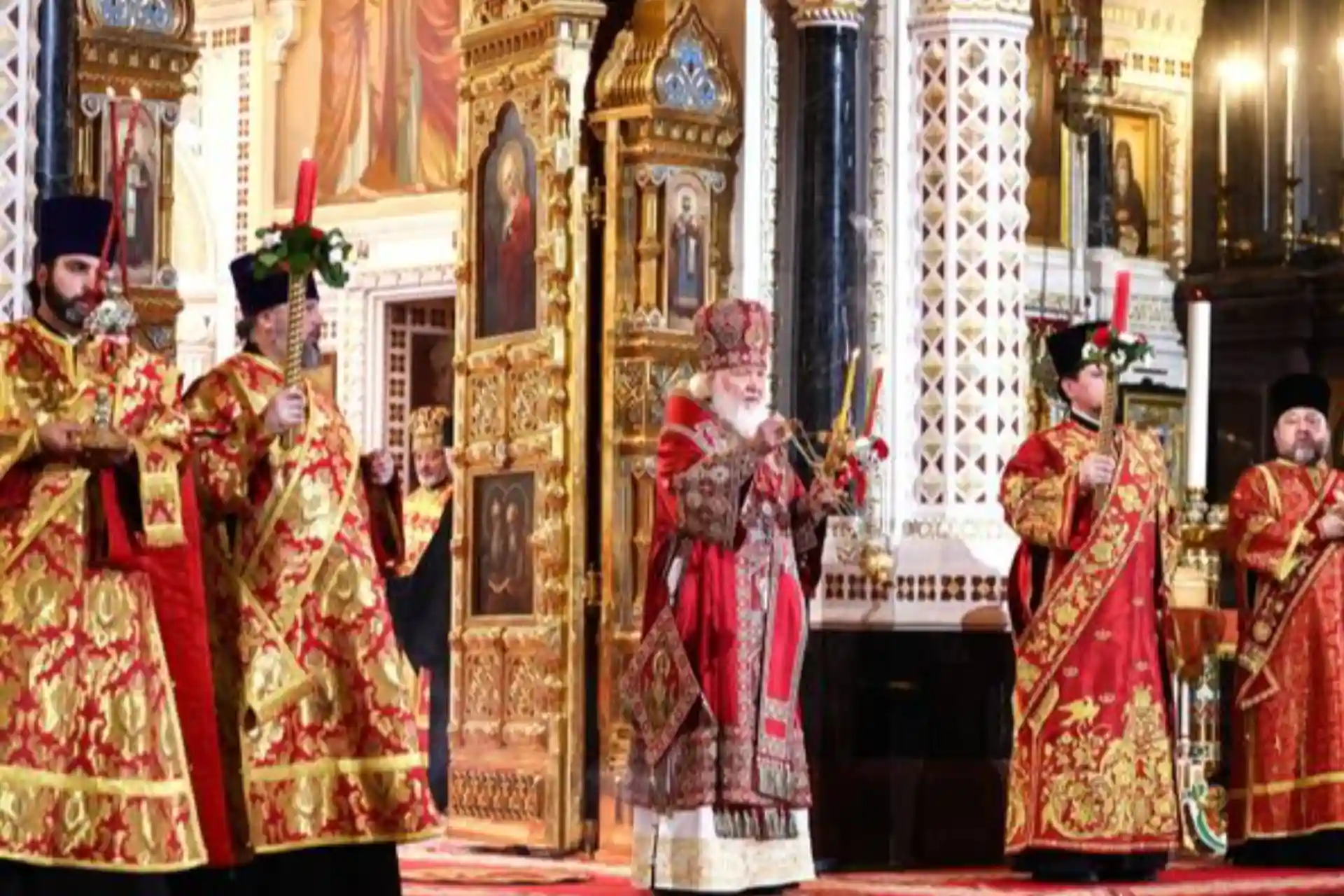Islam and liberalism: where are the limits of freedom?
From the author: Liberalism seeks to liberate man only for his own selfish purposes, while Islam aims to liberate him for purposes greater than himself (social media).
Freedom in Islam: Slavery is the Door to True Freedom
From an Islamic perspective, freedom is not a concept specific to the human race. It is a state that is shaped by a person's relationship with God. The Quran describes man as an honorable being. However, he is also a slave to his Creator. This slavery is not contrary to freedom, but rather its very essence.
By obeying Allah, the Owner of Absolute Truth, man is freed from the desires, lusts, and illusions of "freedom" - factors that make him a slave to material things or people. The Quran states:
"So where are you going?" (Surah At-Takwir, verse 26)
This verse seems to remind us that any attempt at freedom away from divine truth actually leads to an even more terrible slavery.
Freedom is not just a voluntary choice. It is an existential state that has a deeper meaning than the two opposing concepts of freedom and slavery. Imam Ghazali, in his work "Ihya ul-Ulum ad-Din", defines this state as "the heart's liberation from all attachments (other than Allah)." When the heart is cleansed of all attachments, a person is no longer subject to transient things and achieves true freedom.
In Islam, freedom is not a personal right, but a person's ability to live in harmony with society, nature, and all of creation. Man is created as part of a system that operates according to divine law. Therefore, freedom is not about behaving as one pleases, but about consciously choosing what is true and good.
There is a verse in the Quran: "Indeed, We offered the trust to the heavens and the earth and the mountains, but they refused to bear it and were afraid of it. So man took it upon himself" (Surah Al-Ahzab, verse 72).
This verse shows that man's ability to make choices is connected to divine purpose and that this trust is what makes him superior to other creatures.
Sufism adds another dimension to this concept - the idea of "annihilation." According to Junayd al-Baghdadi, a person achieves true freedom by annihilating himself, that is, by overcoming his ego and becoming immortal in the path of Truth. This is not "annihilation," but rather becoming a mirror reflecting divine beauty by renouncing one's own interests.
In this sense, freedom is not a matter of free choice or free movement between alternatives. It is a state of being above all contradictions - living in harmony with reality.
Liberalism: personal freedom and its limits
In contrast, liberalism interprets freedom in terms of the unique dignity of the human person. In this view, the human person is seen as the center of existence. During the Enlightenment, under the influence of philosophers such as John Locke and Jean-Jacques Rousseau, freedom was defined as the right of a person to own his own body and property without external interference.
These ideas were later formalized through declarations of human rights and constitutions. In liberalism, reason is the supreme criterion. Based on Immanuel Kant's concept of "intellectual autonomy", freedom is the ability of a person to govern himself and make his own decisions.
However, this freedom also contains internal contradictions. For while liberalism seeks to free man from external constraints, it can also lead him to new forms of slavery: dependence on endless desires, the market economy, or the human mind as an absolute criterion.
Thomas Hobbes writes in Leviathan that if individual freedom is not limited, a situation of "war of all against all" will arise. Therefore, freedom needs to be balanced through a social contract.
John Stuart Mill, in his work On Liberty, attempted to mitigate this contradiction, arguing that freedom is acceptable only if it does not harm others. However, the question remains: if each person understands freedom from their own perspective, who defines the concept of "harm"?
In his work "Existence and Emptiness," Jean-Paul Sartre describes freedom as an inescapable burden for man: "Man is condemned to be free."
This phrase reveals the complexity of liberalism: it is not a positive freedom, but a state that leaves man wandering in a meaningless world. Islam, on the other hand, makes freedom meaningful through spiritual connection and a higher purpose, while liberalism, by freeing man from external structures, throws him into a spiritual void.
Philosophical comparison: absolute and relative freedom
Islam and liberalism both seek to liberate humanity, but they interpret the source and goals of freedom differently:
✅ In Islam, freedom is a spiritual and internal state, and a person achieves true freedom only when he is connected to absolute truth.
✅ In liberalism, freedom is external independence, which arises when a person strives to be free from any external influence.
This difference is not superficial, but is based on two completely different worldviews:
Islam sees man as a being directed towards a higher purpose, while liberalism interprets man as a personal subject who determines his own destiny.
Freedom and absolute truth in Islam
In Islam, freedom is achieved by transcending the relative existence of man and connecting with divine reality. Ibn Arabi, in his work Fusus al-Hikam, describes the concept of the "perfect man" - a person who combines slavery and freedom in complete submission to God.
This surrender is not weakness. On the contrary, it is a true strength when a person transcends their mental limitations and reaches a reality beyond the material world.
Freedom in Liberalism: Relative and Personal Experience
In liberalism, freedom is relative and based on personal experience. It is tied to individual will and personal decisions, but because there is no absolute source behind it, it lacks a stable foundation.
In Being and Time, Martin Heidegger describes the state of man's "confrontation with nothingness," calling it the true anxiety of man. This anxiety is the state of man without a spiritual foundation. Islam, however, eliminates this wandering through faith, because freedom does not arise from man's ego, but from connection to a higher truth.
The goal of freedom: as a supreme idea in Islam
The most profound difference between Islam and liberalism is the goal of freedom:
✅ In Islam, freedom is not a goal, but a means to get closer to Allah.
✅ In liberalism, freedom is viewed as an end in itself and is shaped by a person's personal desires.
This difference is also reflected in the responsibility that freedom brings:
🟢 In Islam, freedom is linked to responsibility and duty, which leads a person towards a higher goal.
🔴 In liberalism, freedom is seen as a right, but it is not clear in what direction it leads a person.
Friedrich Nietzsche, in Thus Spoke Zarathustra, proposes the idea of a "superman" and attempts to fill the void left by liberal freedom. However, this idea, lacking a divine foundation, failed to truly liberate man.
The "perfect man" and true freedom in Islam
In Islam, the "perfect person" is not a man-made ideal, but rather a person who has achieved reality through complete submission to Allah. The most perfect example of this is the Prophet Muhammad (peace and blessings of Allah be upon him). He was not only the most obedient servant of all people, but also the most free.
This harmony makes Islamic philosophy preferable to liberalism: while liberalism leads a person to spiritual wandering, Islam gives him spiritual strength, direction, and peace.
Freedom - struggle or harmony?
🔵 Liberalism interprets freedom as a struggle - a person must overcome all obstacles, such as nature, society, and laws.
🟢 Islam sees freedom as harmony - a person achieves true freedom only when he is in harmony with the universe and divine law.
Therefore, liberalism forces man to make more and more efforts and endeavors, but cannot give him a stable goal. Islam, on the other hand, interprets freedom as a state that gives man peace of mind, perfection, and spiritual elevation.
Liberalism leaves man alone to find his own path, while Islam guides him and leads him to the truth.
Freedom in Liberalism: An Infinite Contradiction
Liberalism sees freedom as a constant struggle against authority and any restrictions. The resistance of a person to all obstacles is considered freedom. However, such endless resistance can lead a person to slavery against himself - he becomes a prisoner of his own desires or is condemned to the material world.
Freedom in Islam: Liberation through Surrender to Truth
Islam interprets freedom as a state that comes not through struggle, but through surrender to absolute truth. This surrender frees a person from all limitations and lower goals.
Allah Almighty blesses us with this: “Beware! In the remembrance of Allah do hearts find rest” (Surah Ar-Ra’d, verse 28).
This freedom ensures perfect harmony, inner peace, and spiritual elevation in a person.
True Freedom: A Testimony to Eternity
Ultimately, freedom in Islam is a person's connection with eternal truth. Freedom is the realization of one's identity as an integral part of the Absolute Being and the attainment of true liberation through connection with Allah.
🔵 Liberalism leaves man within the limits of the relative and material world - he remains tied to his own situation.
🟢 Islam, however, takes man beyond these limits and leads him towards eternity - he becomes not only a free being, but also a being in harmony with absolute truth.
✅ The true freedom that Islam teaches us is not separation, but connection; not preservation of one's own identity, but reaching out to a higher truth; not temporary freedom, but eternal freedom.
When a person moves towards this perfect freedom, he reaches his true essence - the truth of being a servant of God and free from all other slavery.
Author: Anas Rabi'i



